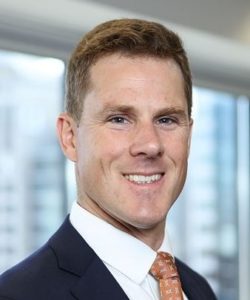The Financial Services Council has confirmed it will be advocating to retain life insurance commissions as one element in its agenda to drive down the cost of financial advice.
With Treasury’s 2022 Quality of Advice review in mind, newly-confirmed FSC Chief, Blake Briggs, noted this week that maintaining the remuneration limits brought in under the Life Insurance Framework reforms, together with other reforms designed to bring down the cost of advice is a key outcome of the Quality of Advice Review the FSC will be advocating for. Briggs says the retention of risk commissions (at their present level), in tandem with other sector reforms, “…will ensure the current high cost of financial advice is no longer a barrier to Australian’s having appropriate life insurance cover.”

…maximum commission caps and mandatory clawback within the first two years of a policy have improved consumer outcomes
The FSC’s position is built around a rationale in which it believes maximum commission caps and mandatory clawback within the first two years of a policy have improved consumer outcomes “…by reducing the misaligned incentives and inappropriate policy replacement disclosed in ASIC Report 413, its Review of Retail Life Insurance Advice” (see: ASIC Life Insurance Advice Review – Unacceptable Level of Failure).
Briggs says the FSC also believes that Life Insurance Framework reforms allow upfront and ongoing commissions to be paid to advisers “…at a level that appropriately reimburses financial advisers for the significant amount of work undertaken at commencement and throughout the life of the policy.”
The Quality of Advice Review Report is due to be submitted by Treasury to the Government of the day by 16 December 2022 (see: Quality of Advice review – Issues Paper Released).




Inappropriate policy replacement AKA churn, was later proven to be a very small percentage of Advisers and it would have been nice if this had been properly checked and verified at the time.
What we ended up with, was a witch hunt where all Advisers were tarnished with the same brush.
ASIC later admitted that churn was not a big issue and that the vast majority of Advisers were honest and looked after their clients best interests.
Blake needs to recognize this also, as he will open up a lot of old wounds if he brings up that old and discredited argument again.
Jeremy, the fact that it was later proven that churn was limited to a very small and IDENTIFIABLE cohort of advisers AND that none of the punitive legislation affecting ALL advisers was reversed is one of the main reasons I left the industry in disgust. The lower commissions are clearly NOT sustainable for advisers and the 2 year clawback is not something any thinking adviser should tolerate – I did for a while but finally woke up. It is just ridiculous and would not be tolerated in in any other industry. I really am at a loss as to how the life companies pulled it off. Follow the money is usually the answer, is it not?
This is not the only reason I called it a day by any stretch, but the fact these creatures are still in charge and largely uncontested gave me ZERO faith in the future of our once great industry. Writing on wall. Sell up. Vote with feet.
Oh dear, same old broom, in fresh hands. What could go wrong?
“Briggs says the FSC also believes that Life Insurance Framework reforms allow upfront and ongoing commissions to be paid to advisers “…at a level that appropriately reimburses financial advisers for the significant amount of work undertaken at commencement and throughout the life of the policy.”
No sign of grasping reality in that little dose of PR spin. No one prepared to admit to a stuff up!
The bottom line here is that IF Mr Briggs takes the time to nail his life insurance CEO members to the wall and apply truth serum, he will soon learn that there’s been a 40 to 50% reduction in new life risk business since LIF. Only the FSC can provide us with those figures, and frankly it’s not in their best interest to do so at the moment, so let’s keep to “stinkin short-term thinkin” as the moonshiners is used to say to Al Capone about Eliot Ness. This
The CEOs in the FSC clearly think they can hang on a little bit longer before the walls around their fortresses start to cave in because new business stopped.
I was beginning to frame a response to Mr. Brigg’s corporate dribble-speak as I read the article but then I saw your comment “Old Risky” so I stopped. You’ve said exactly what I wanted to so thank you. It never ends, does it?! These bought and paid-for bright-eyed and bushy-tailed upstarts like Briggs thinking they know it all and they’ve been around for 2 minutes. Can you imagine the life companies – they’d be apolectic at any suggestion of higher-than-current commissions and a 1 year clawback period. Cheers ol’ mate.
Gee, I wonder ‘Briggsy’…how would you go living in a world where a huge mountain of overreaching compliance exists that causes advisers to now invest around 24-30 hours of work only to receive maybe $2,800 for a risk policy – less GST AND tax, less Licensee fees, less PI Insurance, less research software costs and worse still – less an industry body membership fee and ASIC funding fee? Then, you can add a 2-year clawback responsibility period to whatever’s left.
My guess is you wouldn’t go well like us left…but then again, you don’t have to now, nor do you have to even care now that you’ve got a cushy FSC management role.
To roll out the same old lines your predecessors have shows nothing but we’re about to see exactly the same ****, just a different day shovelling it.
Comments are closed.